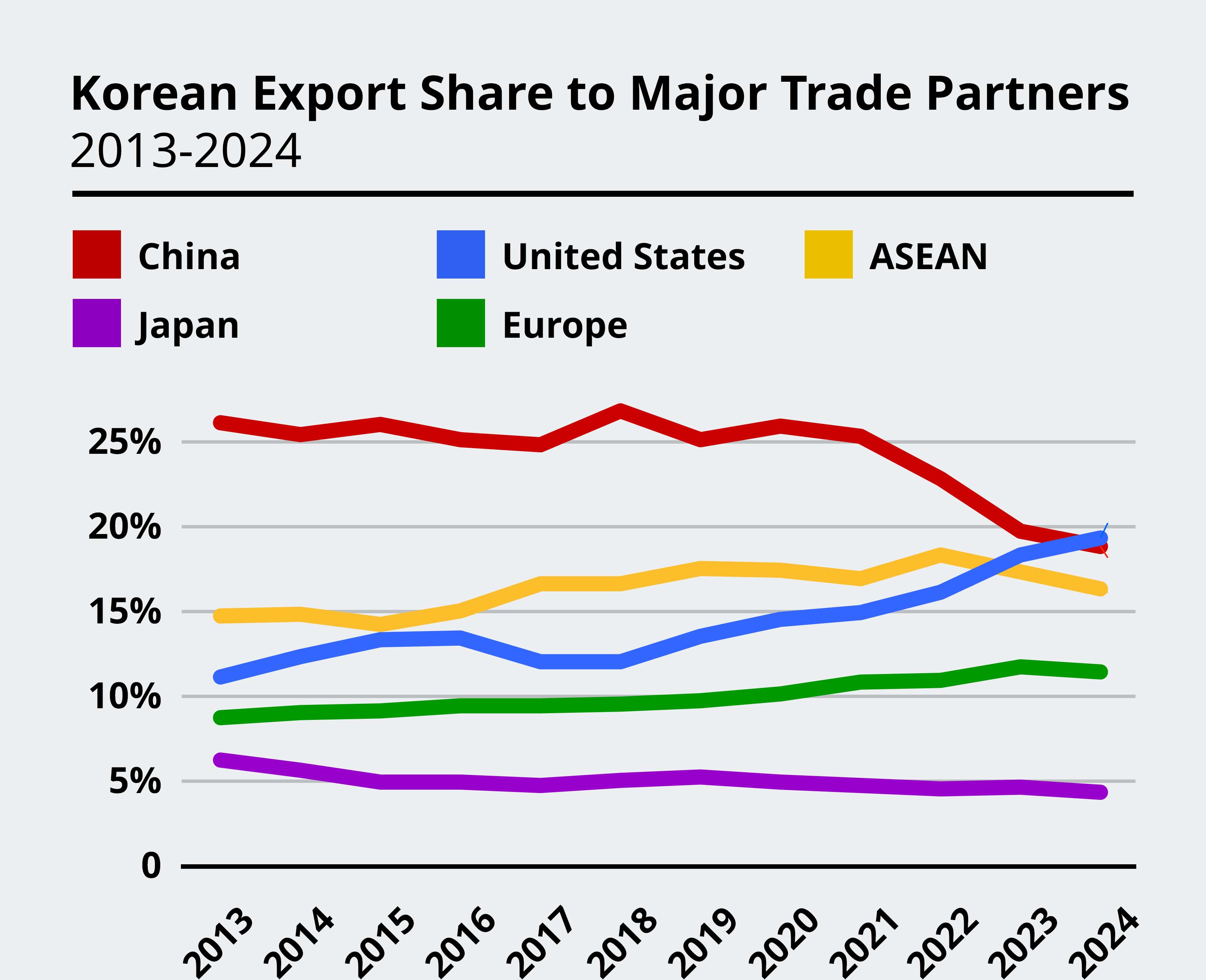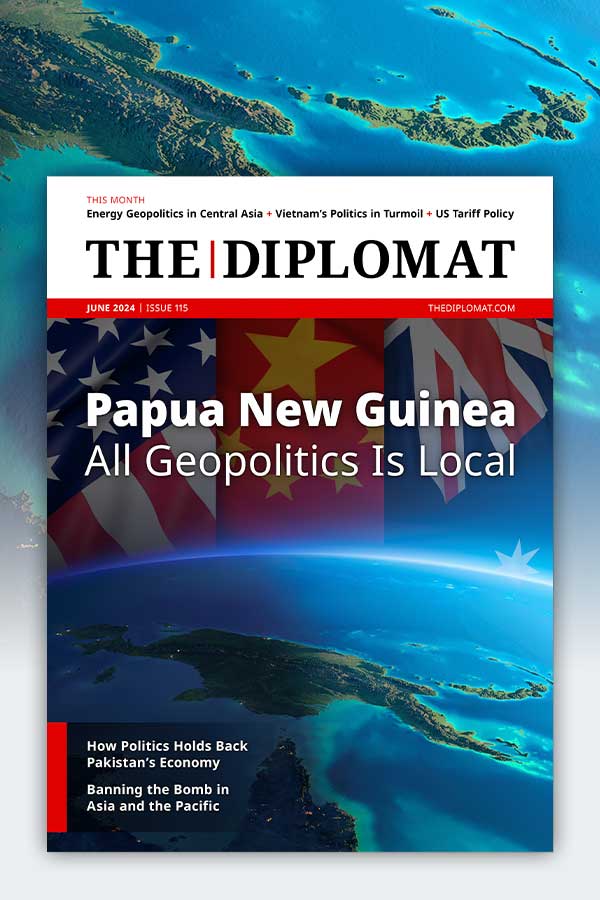| Welcome to the latest issue of Diplomat Brief. This week our top story examines the impact of Myanmar’s internal conflict on Bangladesh, particularly the border island of Saint Martin’s. We also have an interview with Pakistani business and economy journalist Khurram Husain on the future of Chinese investment amid Pakistan’s economic and security challenges. |
| Story of the week | ![[object Object]](jpg/feature5e1f.jpg) | Security Myanmar’s Conflict Reaches the Doorstep of Bangladesh’s Saint Martin’s IslandWhat Happened: Myanmar’s ongoing civil war directly impacts neighboring Bangladesh, both through refugee flows and through violence spilling over the border. Since last October, fighting between the Arakan Army and the Myanmar military has been particularly fierce in Rakhine State, which borders Bangladesh. In the most recent development, there have been numerous instances of gunfire targeting vessels traveling in the Naf River, which forms the border between Bangladesh and Myanmar. These attacks forced Bangladesh to halt use of the main maritime route connecting Saint Martin’s Island, located at the mouth of the river, to the mainland. Now Saint Martin’s population of over 10,000 are facing shortages of food and other daily supplies, while also losing out on critical income from tourism. Our Focus: “A food crisis has already started as no cargo boats and speedboats are running to the area,” Nur, a 26-year-old native of Saint Martin’s, told The Diplomat. While some emergency supplies were sent, he said they will not be enough: “If the boats don’t start running again normally, the crisis won’t be solved.” Meanwhile, local incomes – now heavily reliant on a tourism boom that began in 2022 – are being hit. Nur estimated that a local resort he co-owns has lost “at least 70 percent of our revenue compared to previous years.” What Comes Next: Reports of bullets fired from Myanmar territory toward Bangladeshi fishing boats are becoming more frequent, as are incidents of Myanmar nationals (including military troops) illegally crossing the border to flee the advancing Arakan Army. “The conflict between the junta and AA … is extending into the waterways, particularly the Naf River,” said Altaf Parvez, a researcher and writer on Southeast Asian history and politics. Saint Martin’s is paying the price. But Bangladesh’s government must tread carefully in navigating the situation, as it cannot afford to alienate whoever emerges victorious. “The Bangladesh government must maintain good relations with both the AA and Myanmar government, as it seems the AA may soon take control of Rakhine State,” Parvez noted. Read this story |
| Behind the News | INTERVIEW Khurram HusainLeading Pakistani business and economy journalist Khurram Husain on the announcement of Phase II of the China-Pakistan Economic Corridor during Prime Minister Shehbaz Sharif’s recent trip to China: “The so-called Phase II of CPEC is not something to be taken very seriously. It is highly unlikely that there will be much substance in it. The launch is being hyped more by the Pakistani government rather than the Chinese side.” Read the interview |
| This Week in Asia | Northeast Asia Russia’s Putin Visits North KoreaRussian President Vladimir Putin is in Pyongyang for a two-day visit this week, his first trip to North Korea since 2000. The visit cements recent progress in Russia-North Korea ties, which accelerated after Kim Jong Un’s visit to Russia in September 2023. Since then, Moscow is believed to have provided Pyongyang with technical advice to finally achieve successful insertion of a spy satellite into orbit; in return, North Korea is reportedly selling Russia arms for use in its invasion of Ukraine. Moscow and Pyongyang are also seeking to expand cooperation in other areas, such as tourism, defense R&D, and North Korean labor. Find out more | South Asia India Hosts US NSA After Modi Attends G-7 SummitThe Modi government’s third term began with a busy foreign policy slate. On June 14, Prime Minister Modi himself attended the G-7 Outreach Summit in Italy, where he met with Ukraine’s President Zelenskyy. This week, the U.S. national security adviser visited New Delhi to discuss closer cooperation on defense technology, semiconductors, and clean energy. Together, the exchanges have sparked speculation that Modi’s government will be leaning closer to the United States in its third term. Find out more | Southeast Asia Thai Senate Approves Same-Sex Marriage BillThailand’s Senate this week overwhelmingly voted to pass a bill to legalize same-sex marriage, putting it on the brink of becoming the first Southeast Asian nation, and the third in Asia after Nepal and Taiwan, to do so. The bill, passed by the House of Representatives in late March, will amend the country’s Civil and Commercial Code to replace gender-specific words such as “men and women” with gender-neutral words such as “individual.” The passage comes after years of advocacy by LGBTQ rights groups, who cheered the passage of the law as a “triumph for justice and human rights.” The law now requires only the pro forma signature of King Vajiralongkorn and publication in the Government Gazette before it enters into force. Find out more | Central Asia In Kyrgyzstan, Kempir-Abad Case Comes to Surprising EndIn a surprising turn of events, a court in the Kyrgyz capital Bishkek acquitted most of the defendants in the notorious (and classified) Kempir-Abad dissidents case. A handful whose cases were separated are awaiting their own verdicts. Back in October 2022, more than 20 activists and politicians – as well as a former judge and a journalist – were arrested for agitating against the government’s effort to finalize a border deal with Uzbekistan. The deal went ahead and so did the court case, which expanded into charges of attempting to seize power. The chief judge cited a lack of evidence in his ruling. Find out more |
| Visualizing APAC |  | Source: Korea Customs Service For the first time in two decades, China has lost its spot as the top destination for South Korean exports. See the full picture |
| Word of the Week | Society 总体国家安全Zǒngtǐ guójiā ānquán, Mandarin for “comprehensive national security,” a catch-all term that is used to justify censorship of art and culture. Find out more |
|  |
![[object Object]](jpg/feature5e1f.jpg)

